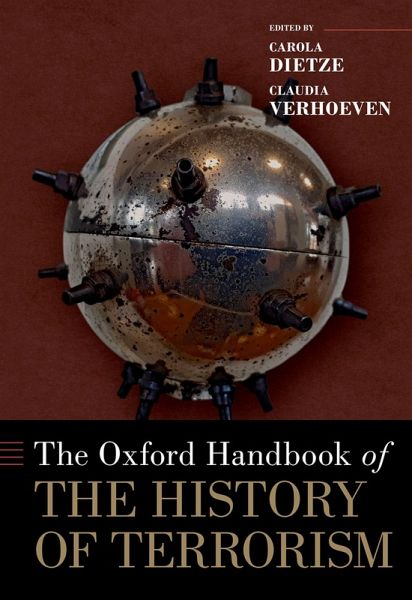
The Oxford Handbook of the History of Terrorism (eBook, ePUB)
Versandkostenfrei!
Sofort per Download lieferbar
52,95 €
inkl. MwSt.
Weitere Ausgaben:

PAYBACK Punkte
26 °P sammeln!
The Oxford Handbook of the History of Terrorism presents a revaluation of the major narratives in the history of terrorism, exploring the emergence and the use of terrorism in world history from antiquity up to the twenty-first century. The essays collected in this handbook constitute the first systematic analysis of the relationship between terrorism and modernity on a global scale from the French Revolution to the present. Historians and political theorists have long asserted such a link, but this causal connection has rarely been rigorously investigated, and the failure to examine such a cr...
The Oxford Handbook of the History of Terrorism presents a revaluation of the major narratives in the history of terrorism, exploring the emergence and the use of terrorism in world history from antiquity up to the twenty-first century. The essays collected in this handbook constitute the first systematic analysis of the relationship between terrorism and modernity on a global scale from the French Revolution to the present. Historians and political theorists have long asserted such a link, but this causal connection has rarely been rigorously investigated, and the failure to examine such a crucial aspect of terrorism has contributed to the spread of unsubstantiated claims about its nature and origins. Terrorism is often presented as a perennial barbarism forever lurking outside of civilization when, in fact, it is a historically specific form of political violence generated by modern Western culture that was then transported around the globe, where it was transformed in accordance with local conditions. This handbook offers cogent arguments and well-documented case studies that support a reading of terrorism as an explicitly modern phenomenon. It also provides sustained analyses of the challenges involved in the application of the theories and practices of modernity and terrorism to non-Western parts of the world. The volume presents an overview of terrorism's antecedents in the pre-modern world, analyzes the emergence of terrorism in the West, and presents a series of case studies from non-Western parts of the world that together constitute terrorism's global reception history. Essays cover a broad range of topics from tyrannicide in ancient Greek political culture, the radical resistance movement against Roman rule in Judea, the invention of terrorism in Europe, Russia, and the United States, anarchist networks in France, Argentina, and China, imperial terror in Colonial Kenya, anti-colonial violence in India, Egypt's Muslim Brotherhood, and the German Autumn, to right-wing, eco-and religious terrorism, as well as terrorism's entanglements with science, technology, media, literature and art. The Oxford Handbook of the History of Terrorism ultimately provides an account of the global history of terrorism and coverage of the most important cases from this history, always presented with an eye towards their entanglement with the forces and technologies of modernity.
Dieser Download kann aus rechtlichen Gründen nur mit Rechnungsadresse in A, B, BG, CY, CZ, D, DK, EW, E, FIN, F, GR, HR, H, IRL, I, LT, L, LR, M, NL, PL, P, R, S, SLO, SK ausgeliefert werden.













